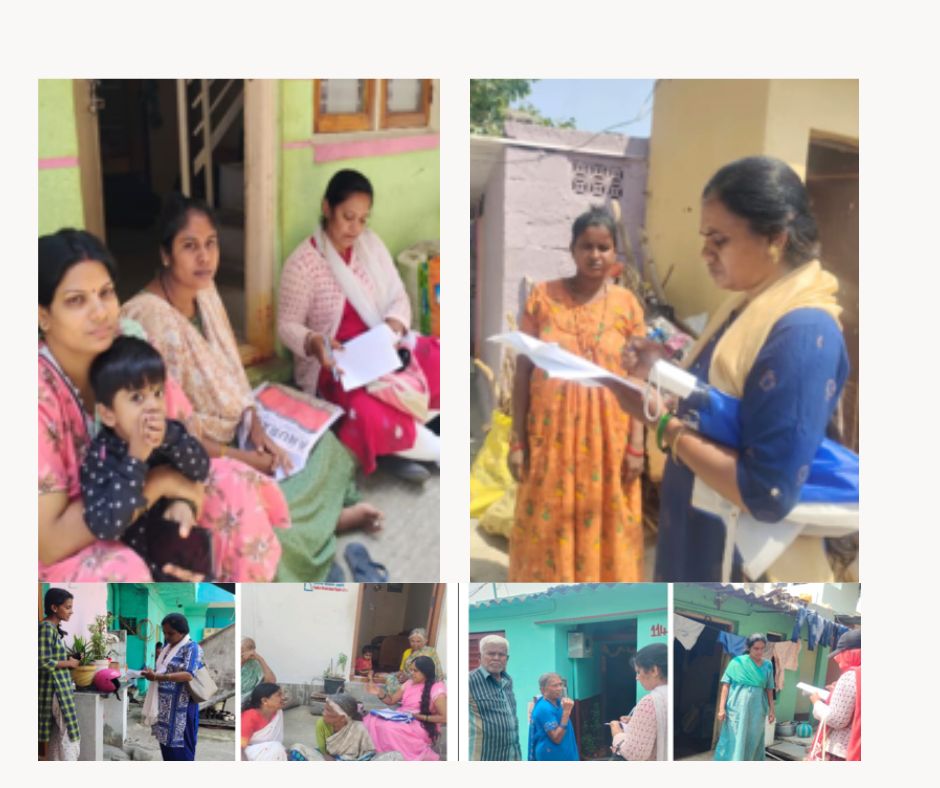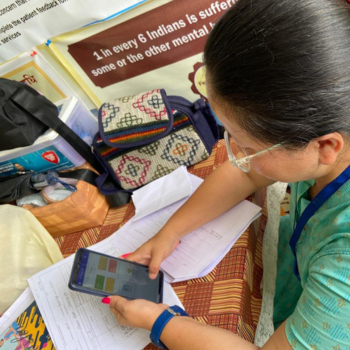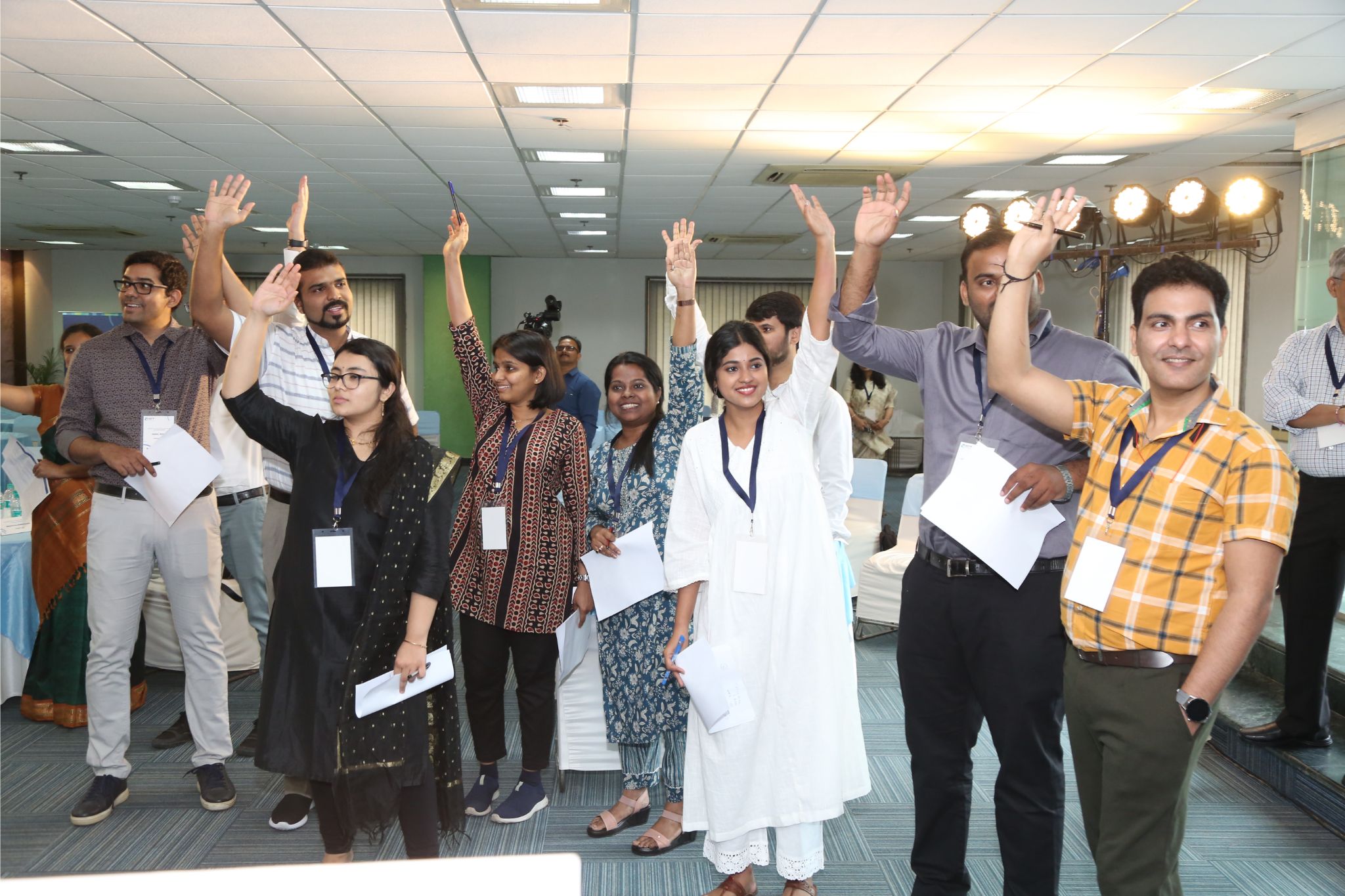Comprehensive Primary Healthcare (CPHC) stands as a cornerstone in the global pursuit of Universal Health Coverage (UHC), ensuring access to a wide spectrum of health services without financial hardship. India’s Ayushman Bharat initiative, launched in 2018, aims to bolster UHC through two main components: Health and Wellness Centers (HWCs) and Pradhan Mantri Jan Arogya Yojana (PMJAY). Despite these efforts, global progress towards UHC has stagnated since 2015, with financial hardship impacting billions worldwide. However, the benefits of UHC are undeniable, spanning from improved health outcomes to economic growth and equity in healthcare access.
To ensure equitable access to RMNCH+A services for vulnerable populations in urban settings, HSTP is spearheading a project to develop an urban healthcare delivery model to enhance RMNCH+A outcomes. The project focuses on bolstering Comprehensive Primary Healthcare services specially tailored to cater to the needs of vulnerable populations in urban areas. The project will be implemented across four Urban Primary Health Centres (UPHCs) located in Mysuru, Karnataka. These UPHCs include Bannimantapa UPHC, Lashkar GandhinagaraMohalla UPHC, Kumbarkoppalu UPHC, and Vishweshwaranagar UPHC, strategically covering the 3 assembly constituencies and representing different areas of the city, with maximum vulnerable population Together, these UPHCs will encompass an average of 12 wards, constituting approximately 24% of the city’s total of 65 wards, and serving a population of around 2.1 lakh.
Through community engagement, health system strengthening, and convergence of stakeholders, the project seeks to create resilient community healthcare structures and increase coverage of quality-assured RMNCH+A services. Noteworthy successes of this framework in India include its utilization in High Priority Districts and innovative approaches like the Aspirational Districts Program, showcasing its adaptability and effectiveness in addressing public health challenges.
The project adopts a multi-layered strategy to foster active community participation and enhance the coverage and quality of RMNCH +A care for PW, CU5, adolescents, and eligible couples (aged 15-49). Through systematic household mapping of 863 households, vulnerable populations are identified for effective service planning and delivery. Community Facilitators, alongside Area and Zonal Coordinators, encourage beneficiaries to enroll in PMJAY schemes during house-to-house visits, mobilizing decision-makers (husbands and mother-in-laws) to avail of Jan Ausadhi Kendras services. Prioritizing marginalized groups in slum areas and remote regions, the project ensures equitable vaccine access and comprehensive coverage. Field staff’s dedicated efforts maintain increased immunization coverage through regular NIDs and SNIDs for all CU5, regardless of economic status. Pregnant and lactating women are regularly counseled on ANC services, early registration, completion of 4 mandatory ANC visits, family preparedness, danger signs of high-risk pregnancies, breastfeeding, nutrition, and early childhood care and Kangaroo mother care for premature with low birth weight infants Currently, the project operates in Bannimantapa UPHC with 4 ASHAs and 4 ANMs serving a population of 4315 (M-2429, F-1886). The project has made significant strides, benefiting over 17,000 individuals, including children, women, and the disabled. As we navigate the intricacies of healthcare delivery, our pursuit of Universal Health Coverage remains paramount. Through CPHC, strategic frameworks like RMNCH+A, and targeted interventions in urban areas, we inch closer to our goal of ensuring equitable access to quality healthcare for all, with minimum OOPE.
In conclusion, the Mysore Urban Healthcare Delivery Model stands as a beacon of innovation and progress in the realm of public health, particularly in the context of advancing UHC. By prioritizing CPHC and focusing on vulnerable populations in urban areas, the project has demonstrated its effectiveness in addressing critical health needs, especially in the realm of RMNCH+A services. Through its multi-layered approach, which encompasses community engagement, health system strengthening, leveraging the existing health platforms, and targeted interventions, the project has addressed the issue of ensuring equitable access to healthcare services. Leveraging schemes like Pradhan Mantri Jan Arogya Yojana PMJAY and platforms like Jan Ausadhi Kendras have further enhanced its impact, benefiting thousands of individuals in the region. As the project continues to make strides in immunization, ANC services, and family preparedness, it sets a precedent for effective healthcare delivery models nationwide, underscoring the importance of comprehensive approaches and strategic frameworks in achieving quality healthcare for all.



